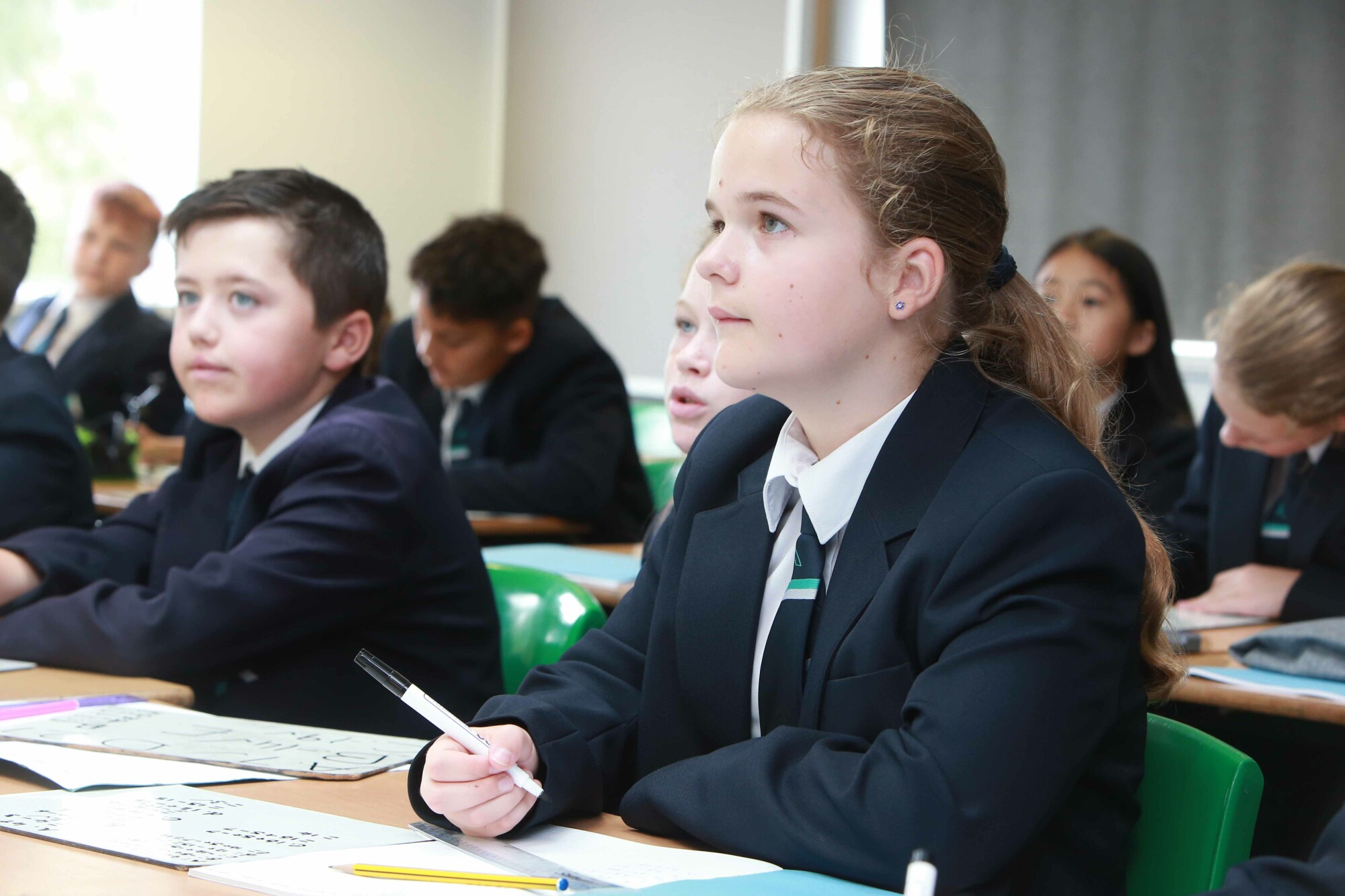What are the key features of the programmes of study?
Mathematics is about understanding how and why numbers work, and underpinning this, is the use of numeracy skills such as arithmetic. In order for students to be numerate and demonstrate understanding of key mathematical concepts, a cyclic mastery scheme of work is taught through Years 7 - 9. The mastery scheme is divided up into pathways, which are linked to the ability level of each student’s Maths set. Alongside the mastery scheme work, a range of starters is used to help improve numeracy including mental strategies and recap and reinforce prior learning.
What will my child study in Year 7?
In Year 7, each half term has a topic focus: Number 1, Algebra 1, Geometry 1, Number/Algebra 2, Geometry 2 and Statistics.
What will my child study in Year 8?
In Year 8, each half term has a topic focus: Number 1, Algebra 1, Geometry 1, Number/Algebra 2, Geometry 2 and Statistics. The same cycle of topics are taught in Year 8, but with increasing complexity and depth of understanding in line with the ability level of the Maths class.
What will my child study in Year 9?
In Year 9, each half term has a topic focus: Number 1, Algebra 1, Geometry 1, Number /Algebra 2, Geometry 2 and Statistics. The same cycle of topics are taught in Year 9, but with increasing complexity and depth of understanding in line with the ability of the Maths class.
How is my child assessed?
Students are assessed each half term through their pathway homeworks and termly through holistic assessments. Personal Learning Checklists (PLC) are issued in advance of the termly assessments, which detail the topics students should revise in preparation. Homework tasks are set to produce revision cards or Mathswatch homework based on the PLCs. Some assessments will be undertaken as an open book assessment, whereby students will be able to use their prepared revision cards. The assessments help prepare students for Key Stage 4 and are graded using the new GCSE grades of 1 - 9.
How are the teaching groups organised?
Students are taught in like-minded classes from the start of Year 7. We formally assess Year 7 students early in the Autumn Term to ensure that students have been appropriately placed into classes based on their skill set and potential.
What equipment is needed?
It is vital that students always come to their Mathematics lessons prepared with the following equipment: pen, pencil, ruler, eraser,mini white board pen, scientific calculator, protractor and compasses. These items are on sale daily from the Maths office throughout the school year, before 8.45 am and after 3.15 pm.



